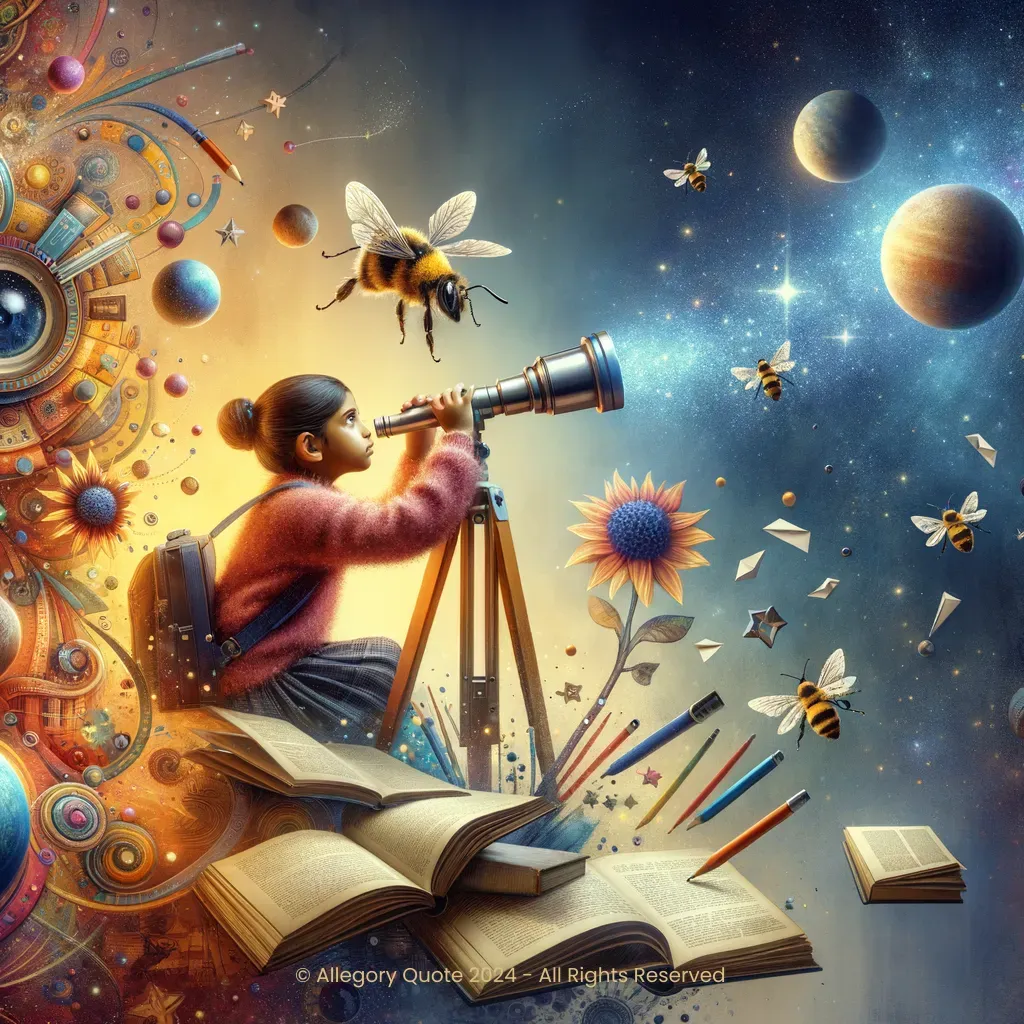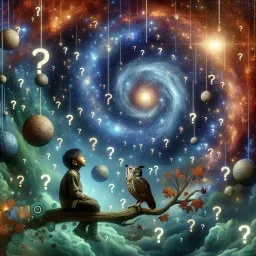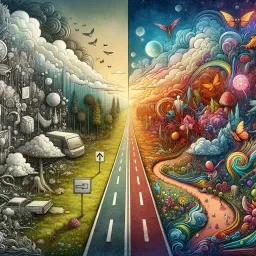”I have no special talent.
I am only passionately curious“

0
0
0
0
- Meaning
- The phrase suggests that while talent can be valuable, it is curiosity— an intrinsic desire to learn and explore— that drives true understanding and innovation. It places value on inquiry and the relentless pursuit of knowledge, suggesting that anyone can excel if they possess sufficient curiosity, regardless of their starting abilities.
- Allegory
- In the allegorical image, the child symbolizes the essence of curiosity and exploration, gazing into the vast universe which represents the limitless mysteries of knowledge. The floating books and artistic tools represent the various avenues of learning available. The bees and flowers signify the relationship between curiosity and the rewards of knowledge— a natural curiosity leading to the growth of ideas and understanding.
- Applicability
- In personal life, this phrase can be applied by encouraging individuals to foster their natural curiosity. Embracing questions and exploration can lead to growth in various areas, from academics to personal interests, reminding us that inquiry is a key component of mastery and personal satisfaction.
- Impact
- This quote underscores the value of curiosity and has inspired countless individuals, educators, and innovators to pursue knowledge passionately. It has become a driving mantra in educational and creative contexts, often quoted to inspire lifelong learning.
- Historical Context
- Although a specific date is not available for this phrase, it is positioned within the broader context of Einstein's life, mainly during the early to mid-20th century, when he was actively engaged in scientific discourse and public speaking.
- Criticisms
- Some criticisms of this phrase contend that it might downplay the importance of dedication and structured effort in developing skills and talents. Critics may argue that talent, combined with hard work, is crucial for achieving mastery.
- Variations
- Variations of this theme exist in different cultures, emphasizing that curiosity leads to innovation and understanding. For example, in Chinese culture, there is a proverb, 'A curious mind can open many doors,' highlighting the value of curiosity in personal and professional growth.
-

You never fail until you stop trying.
-

The important thing is not to stop questioning. Curiosity has its own reason for existing.
-

Anyone who has never made a mistake has never tried anything new.
-

Try not to become a man of success, but rather try to become a man of value.
-

Logic will get you from A to B. Imagination will take you everywhere.
-

We cannot solve our problems with the same thinking we used when we created them.
-

A person who never made a mistake never tried anything new.
-

There’s a great big hunk of world down there with no fence around it.
-

Strive not to be a success, but rather to be of value.
-

Life is like riding a bicycle. To keep your balance, you must keep moving.
No Comments